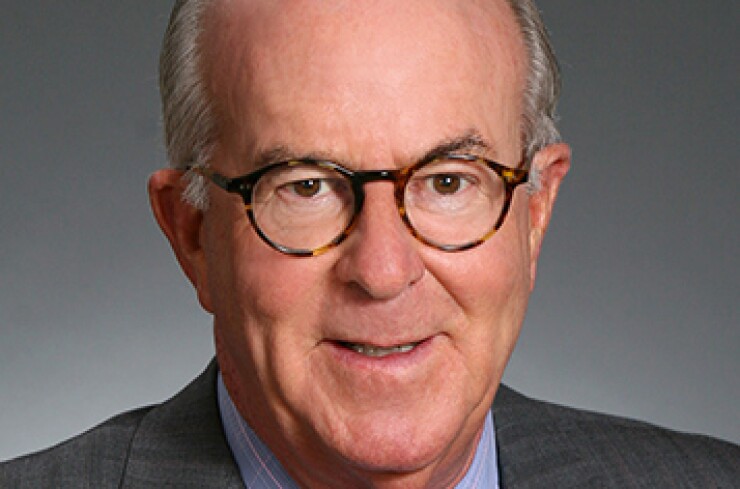
WASHINGTON – A lawyer facing SEC charges that he violated federal securities laws as part of a pay-to-play scheme to secure Ohio pension business is arguing the SEC's charges cannot apply to him and should be dismissed.
Robert Crowe, a partner with Nelson Mullins Riley & Scarborough, allegedly participated in a plan by an official with Boston-based State Street and others, including a former Ohio deputy treasurer now in federal prison, to funnel money to an Ohio treasurer's election campaign in exchange for subcustodian contracts for several Ohio pension funds, according to the SEC.
Crowe, who was the alleged fundraising expert for the scheme that took place in 2010 and 2011, worked with the head of State Street's public funds group at the time, Vincent DeBaggis, to arrange for at least $60,000 in political contributions to be made to the treasurer's campaign during that period, the SEC alleged.
The SEC's complaint charges Crowe with four counts of violating federal securities laws prohibiting fraud in transactions, two for direct violations and two for aiding and abetting DeBaggis' violations by saying in documents associated with the custodial contracts that State Street had not provided any public official with anything of value.
Crowe's lawyers are asking U.S. District Court Judge Algenon Marbley of the Southern District of Ohio to dismiss the case because the global custodial contracts State Street received did not involve the bank making securities transaction decisions. Instead the bank was carrying out tasks it was told to do by the officials of the three pension systems for which it was working. Under Ohio law, the power to make investment and other decisions related to transactions lies only with the pension funds. Subcustodians "assist with the purely ministerial aspects of effectuating securities transactions ordered by others," the motion to dismiss said.
Without the bank's ability to make investment decisions and without providing examples of securities that were affected, Crowe's lawyers said the SEC cannot meet an established precedent from the 2014 Supreme Court case Chadbourne & Parke LLP v. Troice.
The high court required "the misrepresentation" to make "a significant difference to someone's decision to purchase or to sell … a security" for it to be a federal securities violation.
The SEC also does not have the ability to bring charges against Crowe because they can only do so when sanctioning fraudulent activity "in connection with the purchase or sale of any security," Crowe's lawyers wrote.
The other two charges for aiding and abetting should also be dismissed because of the SEC's lack of jurisdiction, his lawyers said. Those charges are additionally undermined because the SEC does not offer proof that Crowe had any knowledge of or involvement with the documents DeBaggis signed denying the existence of a pay-to-play situation.
Crowe's lawyers cite a 2014 case from the U.S. District Court of the Southern District of New York that held that, in such an instance, the SEC would have to show that Crowe "knew or was reckless in not knowing about each of the primary violations."
In a response to Crowe's lawyers' motion to dismiss, SEC lawyers argued the cases cited in the motion do not give an accurate picture of existing case law on the subject. The commission lawyers used examples from other cases to argue for a looser standard that allows the charges to stand.
Their main case is SEC v. Zandford, decided by the Supreme Court in 2002. The SEC lawyers said the high court adopted a broad reading of "in connection with" to be satisfied when the fraud "coincides with a securities transaction," much like Crowe's illegal channeling of funds is part of the scheme to obtain the subcustodian business.
The SEC also argued the aiding and abetting charges are satisfied as long as the aider and abettor has a "general awareness that his role was part of any overall activity that is improper." The commission's complaint said that Crowe, at one point later in the scheme, tried to "cover his tracks" by sending a fake invoice for mentoring services in an amount equal to what he gave the person who funneled the money into the treasurer's campaign.
In the most recent filing in the case, Crowe's lawyers submitted a response to the SEC's arguments, disputing the commission's lawyers' use of case law and arguing they disregarded a "mountain of authority" that backs Crowe's arguments.
The SEC also brought charges in January against State Street and DeBaggis, both of which settled with the commission, paying a combined $286,000 in penalties and disgorgement of ill-gotten gains.





